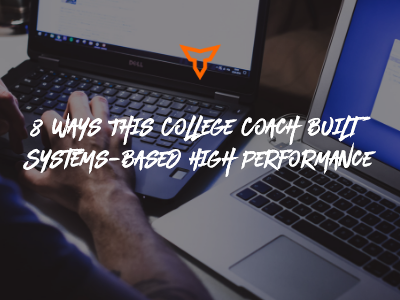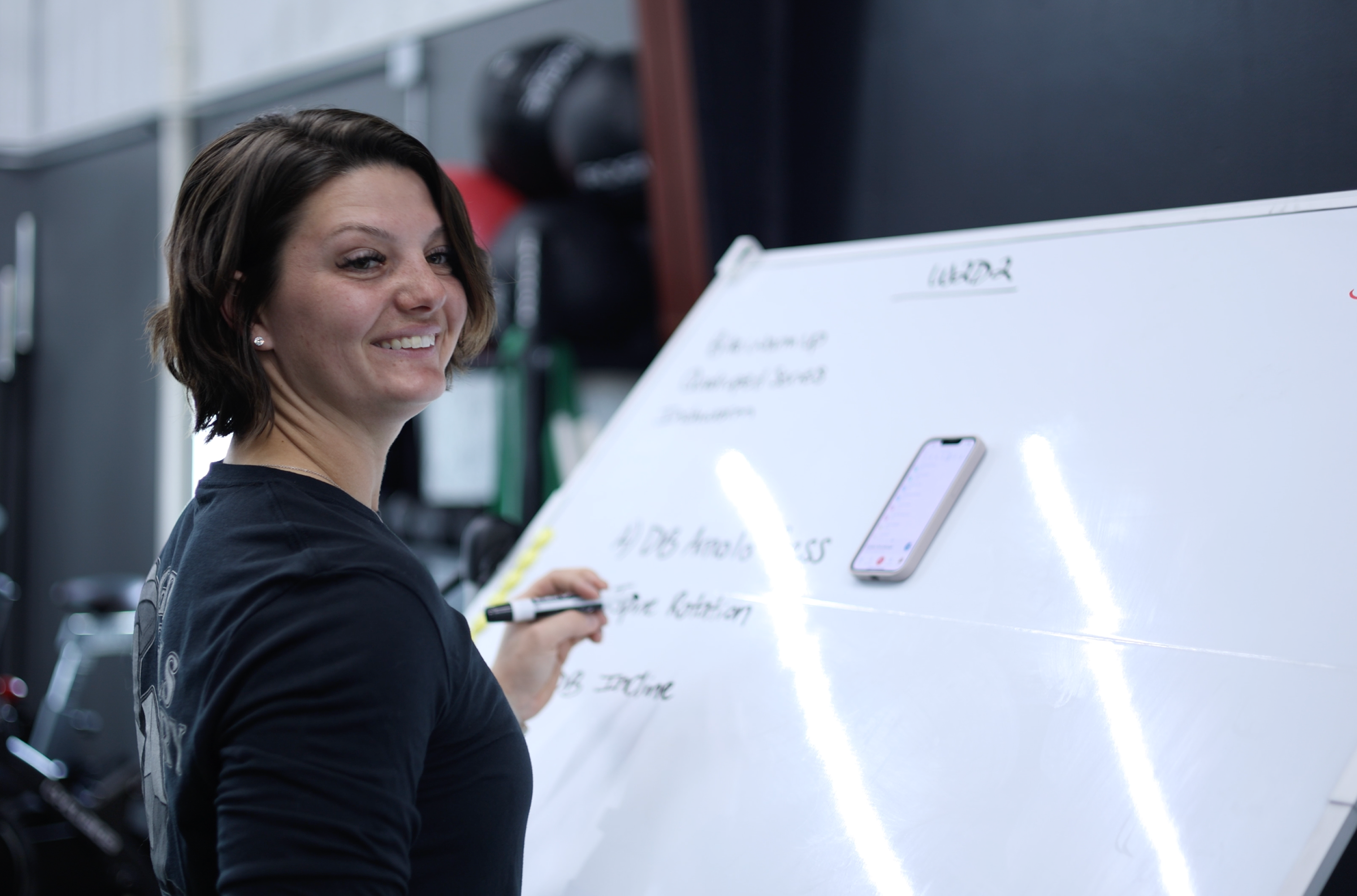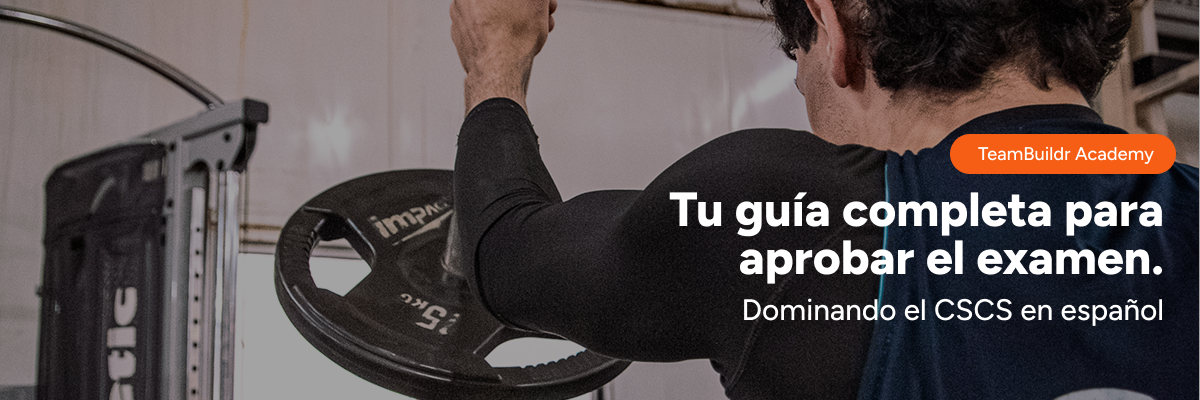Rompiendo Barreras en la Educación del Rendimiento Deportivo
El Dr. Jonathan Núñez Fernández es un fisioterapeuta bilingüe (inglés/español) con Doctorado en Fisioterapia (DPT) de la Universidad de Duke y formación en ciencias del ejercicio. Está licenciado en Carolina del Norte y cuenta con la certificación de Especialista Certificado en Fuerza y Acondicionamiento (CSCS). Jonathan tiene amplia experiencia tanto en entornos clínicos como de alto rendimiento, incluyendo Duke Health, la Universidad de Florida, la Universidad de Virginia y los San Francisco 49ers. Se especializa en rehabilitación ortopédica, recuperación de lesiones de ligamento cruzado anterior (LCA) y entrenamiento para el retorno al deporte. Su enfoque integra la rehabilitación basada en evidencia con principios de entrenamiento de alto rendimiento para ayudar a sus pacientes a moverse mejor, recuperarse con mayor fortaleza y regresar a las actividades que aman.Además de su labor clínica, Jonathan es educador y organizador de eventos, siendo fundador del Puerto Rico Sports Performance Summit, que reúne a destacados expertos en medicina deportiva y rendimiento de Estados Unidos y América Latina. Su dominio del inglés y el español le permite conectar y servir a una comunidad diversa de pacientes y profesionales.
Cuando miro hacia atrás en mi corta carrera, puedo decir con seguridad que estudiar, aprender y trabajar en algunas de las instituciones más reconocidas en el deporte y la rehabilitación nunca estuvo en mis planes originales. No crecí pensando que algún día caminaría por los pasillos de Duke University, Johns Hopkins o la Universidad de Virginia. Tampoco imaginé trabajar en la Universidad de Florida o hacer un internado con los San Francisco 49ers. Sin embargo, de alguna manera, una decisión me fue llevando a la otra y el camino me llevó allí.
En cada uno de esos espacios hubo algo que me marcó más que el prestigio o las oportunidades. Me di cuenta de que, la mayoría de las veces, yo era el único que hablaba español. Las conversaciones, las oportunidades de hacer conexiones y el aprendizaje ocurrían en inglés. Para mí eso era manejable, pero para muchos en nuestra comunidad, esa realidad significaría quedarse fuera por completo.
Con el tiempo entendí que esas experiencias no eran solo logros personales. Venían acompañadas de una responsabilidad. Si a mí me dieron la oportunidad de entrar por esas puertas, yo no podía cerrarlas detrás de mí. Tenía que dejarlas abiertas para los demás. Ese compromiso ha guiado cada paso de mi camino desde entonces.
En el 2020, durante mi primer semestre en el programa doctoral de Duke University, decidí tomar el examen de CSCS. Era el próximo paso en mi carrera profesional. Mientras me registraba, vi algo que me llamó la atención: existía la opción de tomar el examen en español (y otros idiomas). Sentí un alivio inmediato, no por mí, sino por todas las personas que tienen un alto nivel profesional pero no dominan el inglés.
Yo podía tomar el examen en inglés, pero pensé en quienes no podían. ¿Dónde los dejamos? ¿Cómo los apoyamos para que no pierdan oportunidades solo por el idioma?
En ese mismo tiempo, otra idea empezaba a tomar forma: el Puerto Rico Sports Performance Summit. Esta idea no salió de la nada. Como estudiante en Puerto Rico, aprendí rápido que hacer conexiones era clave. Conocer en persona a profesionales que trabajaban en la MLB, la NFL, la NBA o la NCAA División 1 podía abrir puertas y cambiar carreras. Pero para lograrlo había que montarse en un avión, pagar hotel, transportación, comidas y entradas a conferencias. Un viaje así podía costar fácilmente más de $1,500.
Yo no podía costear eso. Y sabía que no era el único.
Quise crear un evento que rompiera esa barrera y trajera esas mismas conexiones, ese mismo conocimiento y esas mismas oportunidades directamente a Puerto Rico. Quería que nuestra gente pudiera aprender y hacer contactos sin tener que cruzar un océano ni endeudarse para lograrlo.
El Summit se convirtió en esa plataforma. Logramos traer a expertos de Estados Unidos a nuestra isla para que estudiantes, entrenadores, fisioterapeutas y profesionales de ciencias del deporte pudieran acceder a conocimiento y conexiones de primer nivel aquí mismo. Y algo inesperado ocurrió: el impacto llegó más allá de Puerto Rico. Entrenadores y fisioterapeutas de Colombia y Venezuela me contactaron inspirados por lo que habíamos creado, preguntando cómo podían hacer algo similar en sus países.
Lo que vi en el Summit confirmó algo que siempre había sospechado. Cuando el conocimiento llega en el idioma correcto y con el contexto cultural adecuado, la gente aprende más rápido. Participa más. Hace mejores preguntas. Y, sobre todo, siente que pertenece.
El Summit dejó claro que existe un hambre genuina de aprender y que el acceso cambia carreras. Pero solo sucede una vez al año, y eso no era suficiente.
Hablando con colegas de toda Latinoamérica, escuché la misma historia una y otra vez. Muchos nunca han intentado tomar el examen de CSCS porque no dominan el inglés. Algunos ni siquiera saben que existen recursos en español, y quienes los encuentran, muchas veces los encuentran inaccesibles en cuestión de costo. Ninguno de estos obstáculos tiene que ver con su capacidad profesional. Son todos problemas de acceso.
Ahí entendí que el próximo paso era claro como el agua de la playa “Los tubos” en Manatí.
El primer curso de CSCS en español para Latinoamérica no es un proyecto secundario ni una simple traducción para conveniencia. Es la continuación de años de trabajo construyendo puentes donde antes había paredes. Es la evolución natural de todo lo que representa el Summit. Y gracias a TeamBuildr, ese puente ahora es una realidad.
Este curso no es un copy y paste del original en inglés. El objetivo es enseñar con el mismo rigor, pero en un español claro y preciso, usando ejemplos que se sientan relevantes para la realidad de Latinoamérica y el Caribe. Cuando hablemos de fuerza, potencia, pruebas de campo o planificación, no tendrás que traducir mentalmente lo que lees. Podrás concentrarte en entender, practicar, aplicar y aprobar. El tiempo que antes dedicarías a descifrar términos, ahora lo invertirás en resolver problemas reales en el rendimiento y la práctica clínica.
Este curso es para entrenadores, fisioterapeutas, profesionales de fuerza y acondicionamiento, estudiantes y especialistas en ciencias del deporte que alguna vez sintieron que el examen estaba diseñado para otra persona. Es para quienes trabajan todo el día y estudian en la noche. Es para los que ya dominan su práctica y ahora quieren dominar el libro.
Sé que el acceso no es solo cuestión de idioma. También es cuestión de costo, conectividad, tiempo disponible y tener el apoyo correcto. Por eso, mi compromiso con este curso es reducir tantas barreras como sea posible. La estructura permitirá caminos de estudio flexibles que se ajusten a la realidad de tu vida diaria. Usaremos grupos de WhatsApp para que nadie estudie solo. Habrá una comunidad detrás de ti, lista para responder preguntas y mantenerte motivado.
No puedo prometer que será fácil. No puedo prometer atajos para aprobar el examen. Lo que sí puedo prometer es instrucción de alta calidad, claridad en el contenido y respeto total por el tiempo y el esfuerzo que pongas.
El Summit me enseñó que cuando abres una ventana, la gente se asoma. Este curso trata de abrir una puerta y dejarla abierta.
No es solo una traducción. Es una invitación a pertenecer.
Y aquí es donde necesito tu ayuda.
Este curso no es solo para ti. Es para toda una comunidad de profesionales en Latinoamérica que ha estado esperando una oportunidad justa para certificar sus conocimientos y habilidades.
Si decides tomarlo, compártelo.
Si conoces a alguien que no ha dado el paso por el idioma o el costo, invítalo.
Si tienes la posibilidad, auspicia o apadrina a un colega que hable español.
Juntos podemos cambiar el mapa de la preparación profesional en rendimiento deportivo en toda Latinoamérica. Podemos garantizar que la próxima generación de entrenadores, terapeutas y especialistas pueda competir a nivel global sin tener que superar barreras innecesarias.
Porque el conocimiento, cuando se comparte, se multiplica.
Dr. Jonathan Núñez Fernández is a bilingual (English/Spanish) physical therapist with a Doctor of Physical Therapy (DPT) from Duke University and training in exercise science. He is licensed in North Carolina and holds certification as a Certified Strength and Conditioning Specialist (CSCS). Jonathan has extensive experience in both clinical and high-performance settings, including Duke Health, the University of Florida, the University of Virginia, and the San Francisco 49ers. He specializes in orthopedic rehabilitation, anterior cruciate ligament (ACL) injury recovery, and return-to-sport training. His approach integrates evidence-based rehabilitation with high-performance training principles to help his patients move better, recover stronger, and return to the activities they love.
In addition to his clinical work, Jonathan is an educator and event organizer, founding the Puerto Rico Sports Performance Summit, which brings together leading experts in sports medicine and performance from the U.S. and Latin America. His fluency in English and Spanish allows him to connect with and serve a diverse community of patients and professionals.
When I look back on my career path, I can honestly say that studying, learning, and working at some of the most recognized institutions in sports and rehabilitation was never part of my original plan. I did not grow up thinking I would walk the halls of Duke University, Johns Hopkins, or the University of Virginia. I never imagined I would work at the University of Florida or intern with the San Francisco 49ers. Yet somehow, one decision led to another, and my journey took me there.
What stood out in each of those spaces was not just the prestige or the opportunities. It was the fact that in most of those rooms, I was the only one speaking Spanish. The conversations, the networking, the learning, it all happened in English. For me, that was manageable. For many in my community, that reality would have meant being left out entirely.
Over time, I realized that these experiences were not just personal milestones. They came with a responsibility. If I had been given the chance to walk through those doors, I could not simply close them behind me. I had to keep them open for others. That commitment has been my guiding principle ever since.
In 2020, during my first semester in the doctoral program at Duke University, I decided to take the CSCS exam. It was a natural step for someone in my field. While registering, I noticed something that immediately caught my attention: there was an option to take the exam in Spanish. I felt an instant sense of relief, not for myself but for the countless professionals who are highly skilled but do not speak English fluently.
I could take the exam in English, but I thought about those who could not. Where do we leave them? How do we make sure they are not excluded from opportunities simply because of language?
Around that same time, another idea was taking shape: the Puerto Rico Sports Performance Summit. The idea did not come out of nowhere. As a student in Puerto Rico, I had quickly learned that networking was essential. Meeting professionals who worked in Major League Baseball, the NFL, the NBA, or NCAA Division 1 could open doors and change careers. But in order to meet them in person, I would have had to get on a plane, pay for a hotel, cover transportation, meals, and conference tickets. That kind of trip could easily cost over $1,500.
I could not afford that. And I knew I was not the only one.
I wanted to create an event that would break that barrier and bring those same connections, that same knowledge, and those same opportunities directly to Puerto Rico. I wanted our people to learn and network without having to cross an ocean or go into debt to do it.
The Summit became that platform. It brought experts from across the United States to our island so that students, coaches, physical therapists, and sports science professionals could access world-class knowledge and connections at home. And something unexpected happened. The impact spread beyond Puerto Rico. Coaches and physical therapists from Colombia and Venezuela reached out to me, inspired by what we had created, asking how they could bring similar events to their own countries.
What I witnessed during the Summit confirmed something I had always suspected. When knowledge arrives in the right language and in the right cultural context, learning accelerates. People participate more. They ask sharper questions. They feel like they belong in the conversation.
The Summit proved there is a deep hunger to learn. It also proved that access changes careers. But it only happens once a year, and that was not enough.
In conversations with colleagues across Latin America, I kept hearing the same story. Many had never even tried to take the CSCS exam because they did not speak English fluently. Some did not know Spanish-language resources existed at all. Others had found them but were discouraged by the high cost. None of these obstacles had anything to do with their ability as professionals. They were all barriers to access.
That is when I realized the next step in this journey was obvious.
The first CSCS course in Spanish for Latin America is not a side project or a translation for convenience. It is the continuation of years of work building bridges where there were only walls. It is the natural evolution of everything the Summit stands for. And thanks to TeamBuildr, that bridge is now real.
This course is not a simple copy and paste of the English version. Our goal is to teach with the same rigor, but in clear and accurate Spanish, using examples that feel relevant to the realities of Latin America. When we talk about strength, power, field tests, or programming, you will not have to translate the words in your head while studying. You will be able to focus on understanding, practicing, applying, and passing. The time you would have spent deciphering unfamiliar terms will now go into solving real clinical and performance challenges.
This course is for coaches, physical therapists, strength and conditioning professionals, students, and sports science practitioners who have ever felt that the exam was designed for someone else. It is for the ones who work all day and study at night. It is for those who have already mastered their craft and now want to master the book.
But access is not just about language. It is also about cost, internet connectivity, available time, and having the right kind of support. That is why my commitment to this course is to reduce as many barriers as possible. The structure will allow for flexible study paths that fit real-world schedules.
I cannot promise that it will be easy. I cannot promise that there is a shortcut to passing the exam. What I can promise is that you will receive high-quality instruction, clarity in the content, and complete respect for the time and effort you invest.
The Summit taught me that when you open a window, people will look inside. This course is about opening a door and leaving it wide open.
It is not just a translation. It is an invitation to belong.
And here is where I need your help.
This course is not just for you. It is for an entire community of professionals across Latin America who have been waiting for a fair chance to certify their knowledge and skills.
If you decide to take it, share it.
If you know someone who has not taken the leap because of language or cost, invite them.
If you have the means, sponsor a colleague or a student who speaks Spanish.
Together, we can change the map of professional preparation in sports performance across Latin America. We can ensure that the next generation of coaches, therapists, and practitioners can compete globally without having to overcome unnecessary barriers.
Because knowledge, when shared, multiplies.
Subscribe to our blog
Subscribe to receive the latest blog posts to your inbox every week.
Related posts

8 Ways This College Coach Built Systems-Based High Performance
-1.png?width=600&height=399&name=WOODFIN%201%20(1)-1.png)
Is An Inside Joke Devaluing the S&C Industry?

